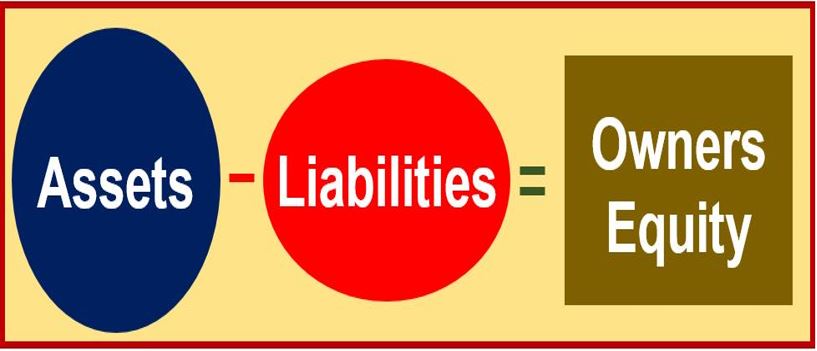In accounting and finance, a Liability is a legal debt or obligation that an entity must pay back. An entity could be, for example, a person or a company. Assets are what a company owns, while liabilities are what it owes.
The International Accounting Standards Board’s (IASB’s) definition of a liability is currently the most widely accepted. It states:
“A liability is a present obligation of the enterprise arising from past events, the settlement of which is expected to result in an outflow from the enterprise of resources embodying economic benefits.”
We report liabilities on the right side of the balance sheet. Examples of liabilities include loans, accounts payable, accrued expenses, bonds payable, and interest payable. Wages payable and income taxes payable are also in that category.

Liabilities are an important element of the operations of a company. They are key in helping financial operations and achieving growth.
In addition, liabilities facilitate and more efficiently allow transactions between businesses.
Liabilities form part of the accounting equation:
Assets = Liabilities + Stockholders’ Equity
When a company’s total liabilities exceed its total assets, it is insolvent. A solvent company is one whose total assets exceed its liabilities.
Liability characteristics
- A long or short-term loan that a bank provides so that a business has the necessary funds to complete a project.
- An entity’s duty to provide a future transfer of assets at a specific date, i.e., on demand, to another party.
- A claim on the assets of a company.
Recent developments in financial regulations, particularly after the global financial crisis of 2008, have led to stricter accounting standards for recognizing and reporting liabilities, aiming to ensure greater transparency and financial stability for companies.
Types of liabilities
On a balance sheet, we usually divide liabilities into two groups; current and long-term liabilities.
-
Current liabilities
These are debts that are due within 12 months, i.e., within the fiscal year or a business’ operating cycle. Interest payable, dividends payable, rental payments, and accounts payable (money a company owes suppliers), for example, are liabilities.
-
Long-term liabilities
These are debts or obligations that the company does not liquidate within 12 months, such as long-term leases, long-term bonds, and pension obligations.
We refer to liabilities without a specified time due or unknown value as ‘provisions.’
Liabilities in banking
The money that people deposit is a liability for the bank because it must pay it back. The bank must also, in some cases, pay interest.
A pension liability is the difference between how much money is due to retirees and the actual amount the company has on hand to meet those payments.
In non-accounting and non-finance contexts, liability can mean:
A hindrance or handicap, as in “After the scandal, the party leader became a liability regarding the forthcoming elections.”
Responsibility, as in “He denies liability for the plane crash.”
Force majeure
Force majeure is French for ‘superior force.’ In contracts, it refers to unforeseeable events. These events prevent a party in a contract from fulfilling its obligation.
Earthquakes, war, terrorist attacks, tsunamis, and hurricanes, for example, are force majeure events.
When there is a force majeure, a contractual party may be exempt from liability if something goes wrong.
Compound phrases with ‘liability’
In business and legal English, there are many compound phrases with the word ‘liability’. Let’s have a look at the five most common ones:
-
Joint Liability
Two or more parties are collectively (together) responsible for a debt or obligation.
-
Contingent Liability
A potential liability that depends on a future event; recognized in accounts if probable and estimable.
-
Unlimited Liability
Owners are personally liable for all business debts, risking personal assets.
-
Vicarious Liability
An entity (like an employer) is responsible for actions of another (like an employee) during their duties.
-
Statutory Liability
Legal responsibility imposed by specific laws or statutes, enforceable in court.
Video – What is a Liability?
This video, from our YouTube partner channel – Marketing Business Network, explains what ‘Liability’ means using simple and easy-to-understand language and examples.
